Soviet blitzkrieg on the hills of Manchuria
78 years ago, the defeat of Japan ended World War II
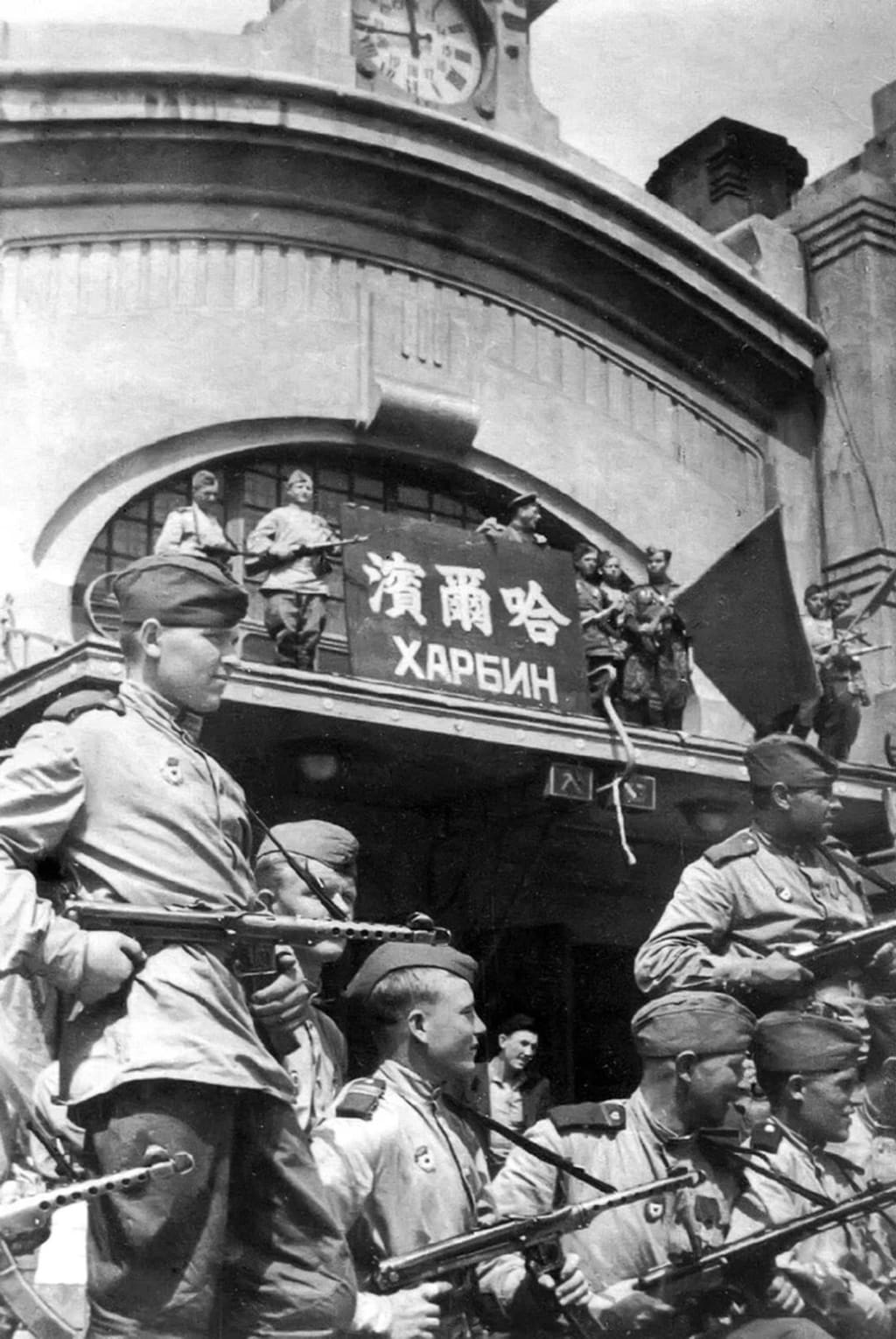
European historians believe that the Second World War began in September 1939, Germany attacked Poland. Chinese historiography dates back to July 1937 - then Japan launched a full-scale war against China. But there are no discrepancies regarding the final date: World War II ended in September 1945 with the defeat and surrender of Japan.
September was in the shadow of May, which is understandable, but unfair. The Manchurian campaign of the Red Army is one of the most important events in modern history.
Three weeks that shook the world
Today, they sometimes write that everything was decided by the US atomic strikes on Japan. However, in 1945, it didn’t seem so to anyone, and the “ordinary” bombing of Tokyo by the United States claimed much more lives (not to mention the fact that nuclear mushrooms over Hiroshima and Nagasaki can be understood as the beginning of the Cold War, Truman’s demonstration of the American prodigy “Uncle Joe” ). At that time, they did not count on an early defeat of the Japanese military machine. Let us remember with what difficulty the Americans, who had been at war with Japan since the end of 1941, took Iwo Jima and Okinawa! In China, Japan held a million-strong Kwantung group. Coal, iron and non-ferrous metals were mined here, military factories worked. Detachment 731 of the savage doctor Shiro Ishii was operating in Harbin - a bacteriological weapons factory.
According to American generals, Japan could resist until 1947, and its collapse would have cost America a million soldiers' lives. Of course, the States played a significant role in the defeat of Japan, but Stalin's Manchu blitzkrieg left her no chance. Already on August 9, 1945, Japanese Prime Minister Suzuki declared: "The entry ... into the war of the Soviet Union puts us completely in a hopeless situation and makes it impossible to continue the war." Even Churchill, who did not like the Russians, eventually admitted: "It would be a mistake to believe that the fate of Japan ... was decided by the atomic bomb."
By agreement with the allies, the USSR undertook to enter the war against Japan two or three months after the defeat of Germany. Already in April 1945, People's Commissar for Foreign Affairs Molotov announced the denunciation of the Soviet-Japanese neutrality pact. And on the night of August 9, Soviet troops simultaneously entered Manchuria (northeast China, where the puppet state created by Japan, Manchukuo, had existed since 1932) from three sides. Three weeks later it was all over.
Short does not mean local or light. The theater of military operations only on land occupied 1.5 million square meters. km - more than Germany, Italy and Japan combined. The length of the border along which the Soviet army deployed is 5 thousand km. After the covert transfer of troops from Europe, the Far Eastern grouping consisted of 1.5 million people, 26 thousand guns, 5.5 thousand tanks and self-propelled guns, 3.5 thousand aircraft. Marshal Vasilevsky became the commander-in-chief of the Soviet troops in the Far East. He coordinated the actions of three fronts: Transbaikal, 1st and 2nd Far Eastern, commanded by Marshal Malinovsky, Marshal Meretskov and General of the Army Purkaev.
Manchuria is not Europe with its fields and roads. In the coastal direction, the troops had to advance along the mountainous taiga terrain, along the hills and swamps, breaking through the Japanese fortified areas (according to Vasilevsky - “something like the Mannerheim Line, only on a larger scale”). The Trans-Baikal Front conquered the Gobi Desert and the Greater Khingan Range. Marine landings landed in Korea, on Sakhalin, the Kuriles. The most bloody battle was the assault on Mudanjiang. In the Kuriles, Soviet troops suffered the greatest losses during the landing on the island of Shumshu. In Korea, the most violent episode was the capture of the port of Seishin (now Chongjin).
On September 2, 1945, the Allies accepted the surrender of Japan aboard the American battleship Missouri. The USSR was represented by Lieutenant General Kuzma Derevyanko, who had another mission in Japan - a non-public one: to study the consequences of the atomic bombing. He wandered through the ruins of Hiroshima and Nagasaki, after which he made a personal report to Stalin. In 1954, 50-year-old Derevianko burned out from cancer, possibly due to the effects of radiation.
The booming echo of the Manchu August
For the Soviet Union, this was a victory on all fronts - military, moral, geopolitical.
If we recall the war of 1904-1905, the intervention of 1918-1922, the rivalry for the Chinese Eastern Railway, the war in China, the battles at Lake Khasan and Khalkhin Gol, we will see: Russia and Japan fought, albeit intermittently, throughout the first half of the 20th century. century.
On the eve of the first clash, the tsarist minister Vyacheslav Plehve said: "We need a small victorious war." It turned out exactly the opposite: big and unsuccessful. For four decades, Stalin took revenge for the Varyag, Tsushima and Port Arthur; the war of August 1945 turned out to be just that swift and victorious. If on the medal "For the Victory over Germany" Stalin's profile is turned to the left - to the west, then on the medal "For the Victory over Japan" - to the east, which obviously refers to the two-headed imperial eagle.
The Kuriles and South Sakhalin (until 1945 - the Japanese prefecture of Karafuto) returned to Russia. The city of Toyohara became Yuzhno-Sakhalinsk, Okhotsk - the inland sea of the USSR.
The international positions of the Union have strengthened as never before. If Japan fell into the sphere of influence of the United States, then in China in 1949, with the support of the USSR, Mao's communists came to power. Korea was divided into a pro-Soviet North and a pro-American South. A broad anti-colonial front unfolded in Asia: Vietnam, Indonesia, Laos...
Commander Afanasy Beloborodov, who became the commandant of Harbin, the eastern capital of white emigration, seemed to be in old Russia: “Cabbies with cabbies in undershirts and high top hats rolled through the streets, flocks of schoolgirls ran, bearded students in uniforms and caps walked sedately ". The first secretary of the Primorsky Territory Committee of the All-Union Communist Party of Bolsheviks, Nikolai Pegov, recalled that with the permission of the commandant, a prayer service in honor of the Red Army was served in the Orthodox Cathedral of Harbin. Former white officers were allowed to participate in the parade in their uniforms, with old awards.
For all that, the victory of Russian weapons in Manchuria was the end of Russian Harbin. Some of the emigrants went to the USSR, others to the Philippines, the USA ... SMERSH bodies arrested in China employees of the Japanese Military Mission and BREM (the Bureau for Russian Emigrants established by the Japanese authorities), activists of the All-Russian Fascist Party. Because of ties with the Japanese, the brightest writers of Russian China died - Arseny Nesmelov and Boris Yulsky (the first died in a transit prison, the second escaped from the Kolyma camp and disappeared). In Moscow, the leader of the WFTU Rodzaevsky and the ataman, the white general Semyonov, were executed. The former head of the NKVD of the Far Eastern Territory, Lyushkov, who defected to the other side back in 1938, was shot dead by the Japanese themselves.
640 thousand Japanese prisoners ended up on the construction sites of the country devastated by the war - from Primorye to Donbass (the majority returned to their homeland in 1948–1950). Pu Yi - Emperor of Manchukuo - was kept in Khabarovsk, he acted as a witness for the prosecution at the Tokyo Tribunal. After the victory of Mao, the last emperor was transferred to China, where he ended up in a "re-education camp", and then was finally forgiven, he worked as a gardener and archivist.
Among the few artistic evidences of the short Manchu war are Georgy Markov's "Eagles over the Khingan", Vladimir Bogomolov's autobiographical novel "My Life, Or You Dreamed of Me...", poems by military commander Pavel Shubin, Mikhail Ancharov's story "This Blue April...". Ancharov, who later became famous as the first bard, served in the SMERSH counterintelligence as a translator from Chinese, was awarded the Order of the Red Star.
The past that is always with you
The events of August-September 1945 are not the distant past, but the living and bleeding present. Not only because Russia and Japan never signed a peace treaty (the question is: why is it needed if Japan capitulated?). And not even because Japan disputes part of the Kuriles.
The thing is different: the story continues, the players are, in general, the same. The USSR, China and North Korea are now nuclear powers. There are American military bases in South Korea and Japan. Between the two Koreas now and then sparks. China announces plans to take back Taiwan...
Moscow responds to the imposition of new anti-Russian sanctions by pro-Western Japan with symbolic gestures. In 2017, the nameless islands of the Kuril ridge were named after General Gnechko, who commanded the Kuril landing operation, and the aforementioned General Derevyanko - an unambiguous message. In 2020, the law “On the Days of Military Glory and Commemorative Dates of Russia” was amended, moving the day of the end of World War II from September 2 to September 3 (this date is stamped on the above-mentioned Soviet medal); this is already a signal to America, distancing from a former ally. Finally, in June 2023, President Putin signed a law renaming September 3 from World War II End Day to Victory Day over militaristic Japan and the end of World War II – another signal to official Tokyo.
Whether the cold war of symbols, notes and claims will turn into a hot one is an open question. One thing is clear: speaking of the "end of history", the American philosopher with Japanese roots Fukuyama was wrong. Half a thousand years before him, the navigator Magellan also made a mistake, recklessly christening the greatest ocean of the planet the Pacific.
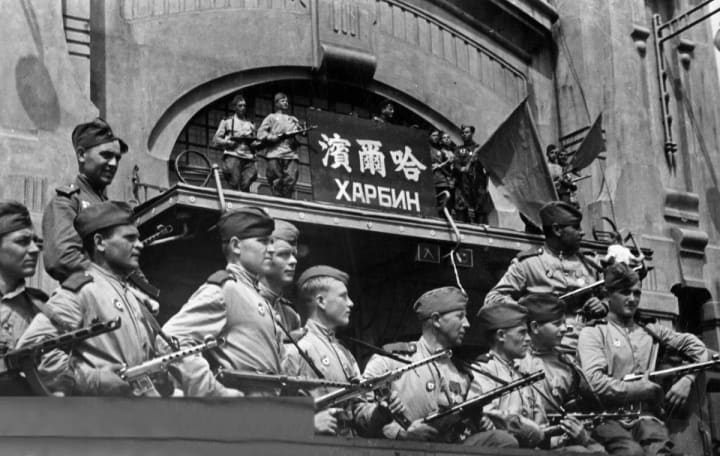
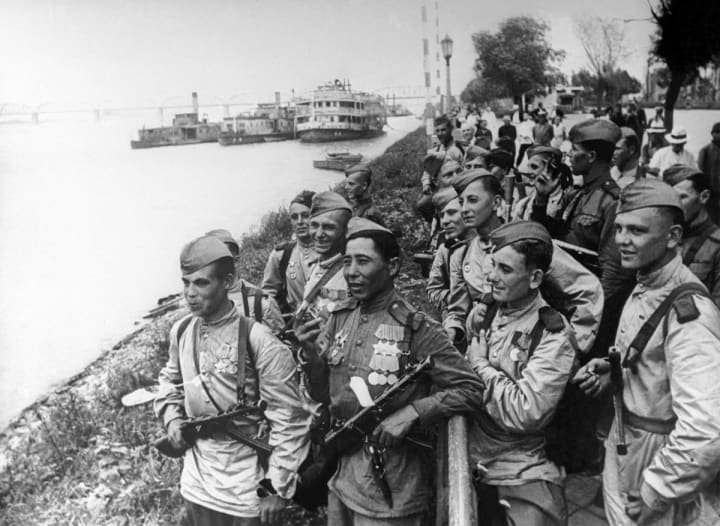
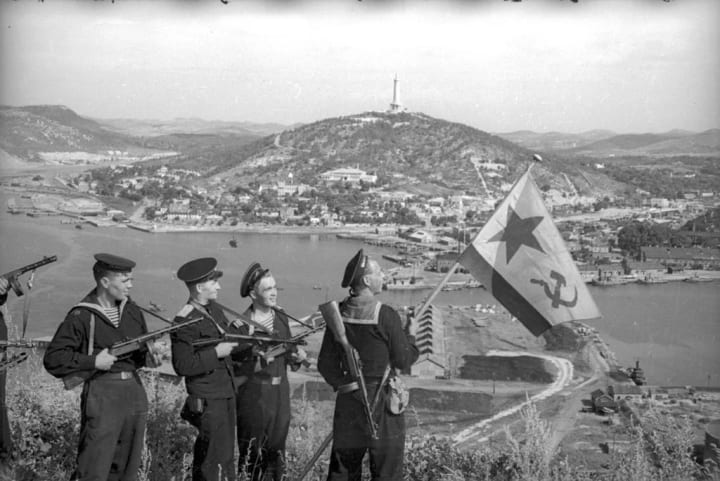
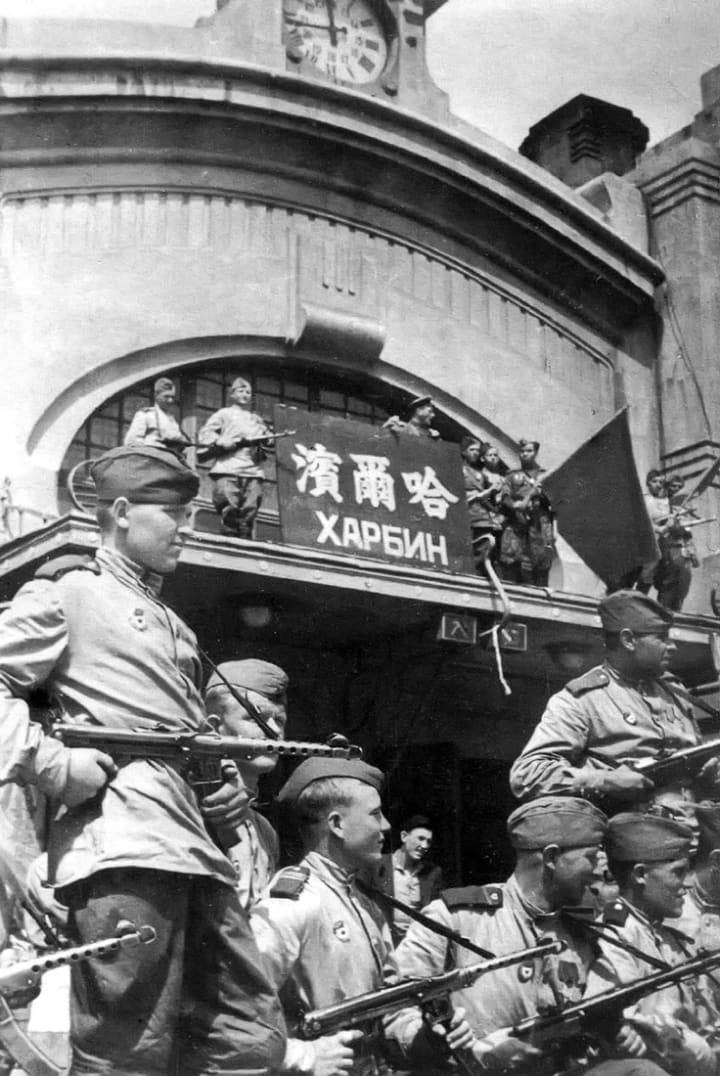


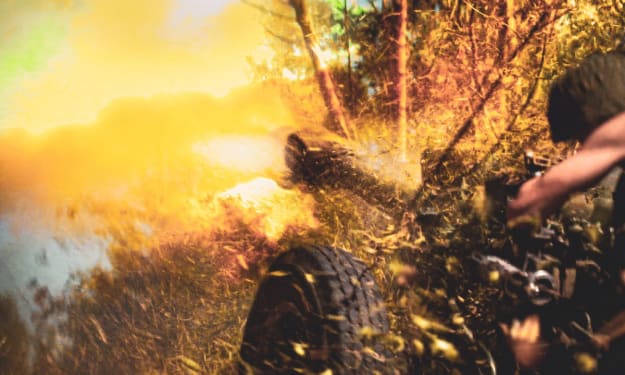

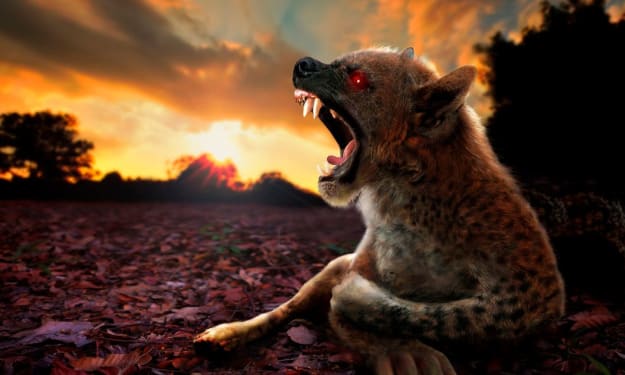

Comments
There are no comments for this story
Be the first to respond and start the conversation.